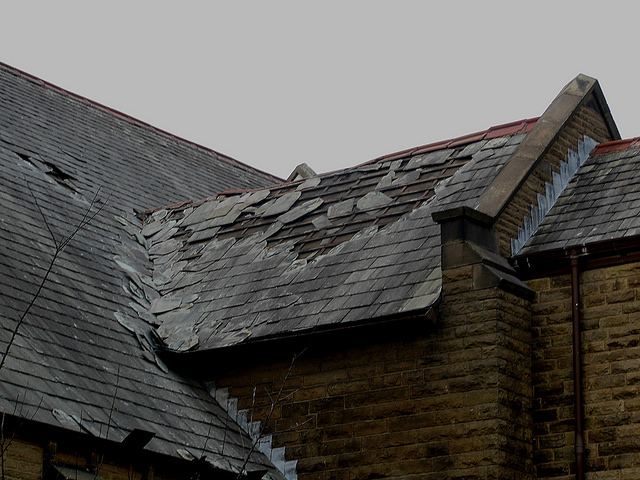Storm chasers are fake roofers who try to cheat and scam homeowners – and during cold weather, they’re just waiting for a big storm. Here’s why they are dangerous, and how you can avoid falling for them.
The Danger of Storm Chasers
These scammers take advantage of homeowners after a powerful storm has blown through the neighborhood. The scammers use the storm to trick homeowners into thinking that their roof has been damaged and needs to be fixed immediately to prevent leaking. With just a few hundred dollars for a down payment, the scammer will get started right away! When you mix in frightened homeowners who can see the damage on other houses with shady storm chasers, it’s easy to see why this scam works.
Of course, the worker never does the work, typically lies about roof damage (or damages the roof during an inspection on purpose), or – at the most – does a quick, shoddy job that usually causes more harm than good. Repeat throughout the neighborhood, and the chaser can make a tidy sum while homeowners throw their money away.
How to Avoid Storm Scams
Don’t want to get caught in one of these storm scams? Here’s how to avoid trouble in the first place. As winter storms roll in, follow these steps the next time someone tries to sell you a roofing job.
- Ignore “knock on door” contractors: Professional roofers don’t usually knock on your door and tell you about roof problems. They’re too busy doing their jobs! So your first step is ignoring anyone who tries to sell you on roofing repairs out of the blue. Say no, end the conversation, and close the door. Cut it short in the beginning and you won’t have to worry.
- Avoid large upfront payments: True roofing contractors don’t usually require upfront payments. Some roofers offer free inspections, and won’t ask for a check until the job is done. If a roofer is asking for a large payment before doing any work, it’s probably a scam.
- Know your own roof condition: Stay free of these scams by keeping an eye on your roof. Take a look after a big storm and see if any shingles have flown off, or if any debris has caused damage. Understand what parts of your rooftop may be the most vulnerable, and what types of damage wind, hail and rain can do. Then you will know if you need roof repair or not, and you’ll be immune to scammers trying to convince you otherwise.
- Go local: When seeking a roofing company, go with a local contractor that has plenty of experience in the area. Chasers tend to be from out of town – so people won’t know them.
- Research companies: Make sure that companies have real websites, certifications, and insurance. When in doubt, look up the roofer on the Better Business Bureau to see if there are any records or comments.




